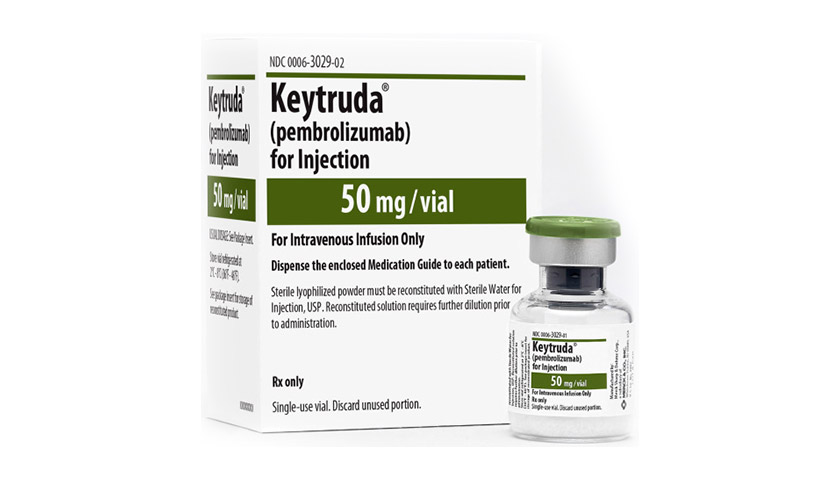Merck gets EU nod for Keytruda in adjuvant kidney cancer

Merck & Co has passed another milestone in its drive to move PD-1 inhibitor Keytruda earlier in the treatment pathway for cancer, with the European Commission approving use of the drug as post-surgery (adjuvant) therapy for renal cell carcinoma (RCC).
Adjuvant treatment moves use of the drug into patients with earlier-stage cancer, a key strategy for Merck and other cancer immunotherapy companies as it expands the pool of patients eligible for treatment.
Keytruda (pembrolizumab) has been cleared by the Commission as a monotherapy for use after surgery in adult RCC patients who are at intermediate-high or high risk of the disease recurring, and is the first drug in the PD-1/PD-L1 inhibitor class to be cleared for this use in the EU.
The checkpoint inhibitor is already approved in the EU as a first-line therapy for previously-untreated RCC in combination with Pfizer's Inlyta (axitinib) and Eisai's Lenvima (lenvatinib), both tyrosine kinase inhibitors.
The new indication comes on the back of the KEYNOTE-564 trial which involved patients who had surgery to remove the kidney affected by the tumour – and in some cases the removal of lesions that had spread to other parts of the body – in an attempt to cure the cancer.
The main outcome measure was disease-free survival, and Keytruda reduced the risk of the cancer coming back or death by 32% compared to placebo after almost two years of follow-up.
"This approval demonstrates our progress in bringing Keytruda to patients with earlier stages of cancer, with the goal of helping more patients around the globe prevent disease recurrence," said Scot Ebbinghaus, head of clinical research at Merck Research Laboratories.
Rival companies are also developing their checkpoint inhibitors for adjuvant RCC, including Roche whose Tecentriq (atezolizumab) is in the phase 3 IMmotion010 study, and AstraZeneca which is testing its Imfinzi (durvalumab) alone and in combination with CTLA4 drug tremelimumab in the RAMPART trial.
Bristol-Myers Squibb meanwhile is running the CheckMate-914 study, looking at its PD-1 drug Opdivo (nivolumab) alone and in combination with CTLA4 therapy Yervoy (ipilimumab) in this setting.
Merck – known as MSD outside North America – also has approvals for Keytruda as adjuvant therapy for skin cancer melanoma, triple-negative breast cancer and oesophageal/gastric oesophageal junction cancer. Analysts have suggested that the new indications – particularly TNBC – could push sales of the $14 billion blockbuster even higher.













